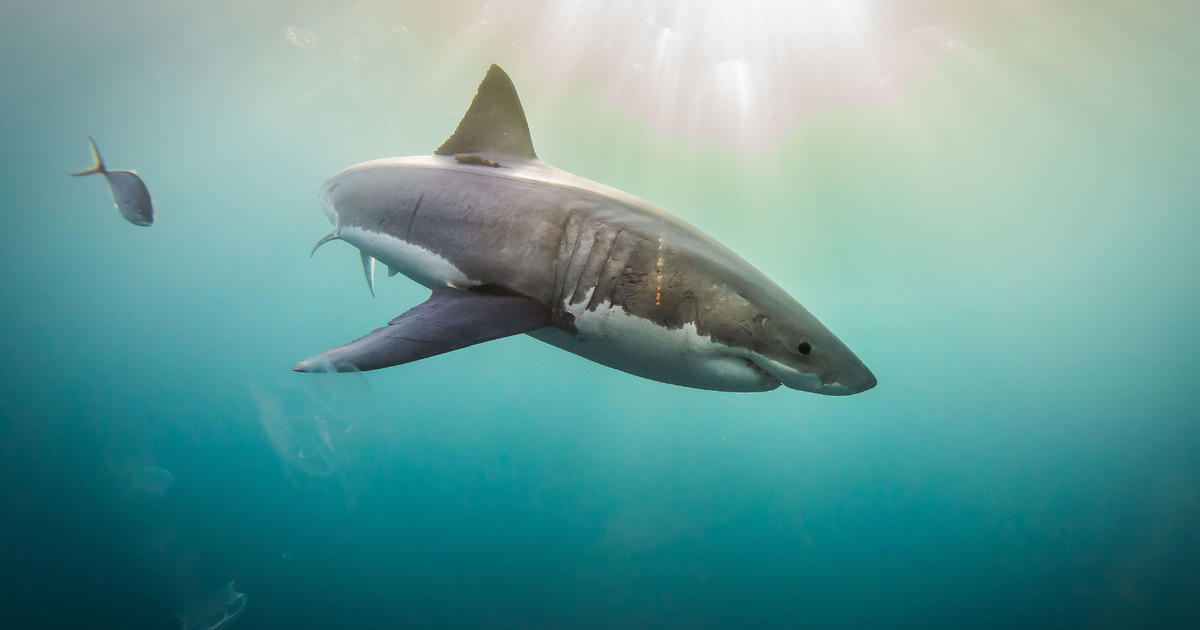
Why do great white sharks bite humans? Research shows it may be a case of mistaken identity.
CBSN
Great white shark attacks are rare, and when they do occur, they are sometimes fatal. But attacks against the human species are often a result of mistaken identity, new research published on Tuesday shows.
The study, published in the Journal of the Royal Society Interface, was conducted by looking at humans and animals from a great white shark's eye view below the ocean surface. It's often been assumed that it's hard for sharks to differentiate between them, but there is little research taking into account how sharks see, rather than just from their perspective from underwater.
Sharks, according to the research, have limited color perception if they are not completely color blind, and have spatial resolving power that is "considerably worse than humans." So when they are looking for prey, researchers found, they more heavily rely on motion and brightness contrast.
